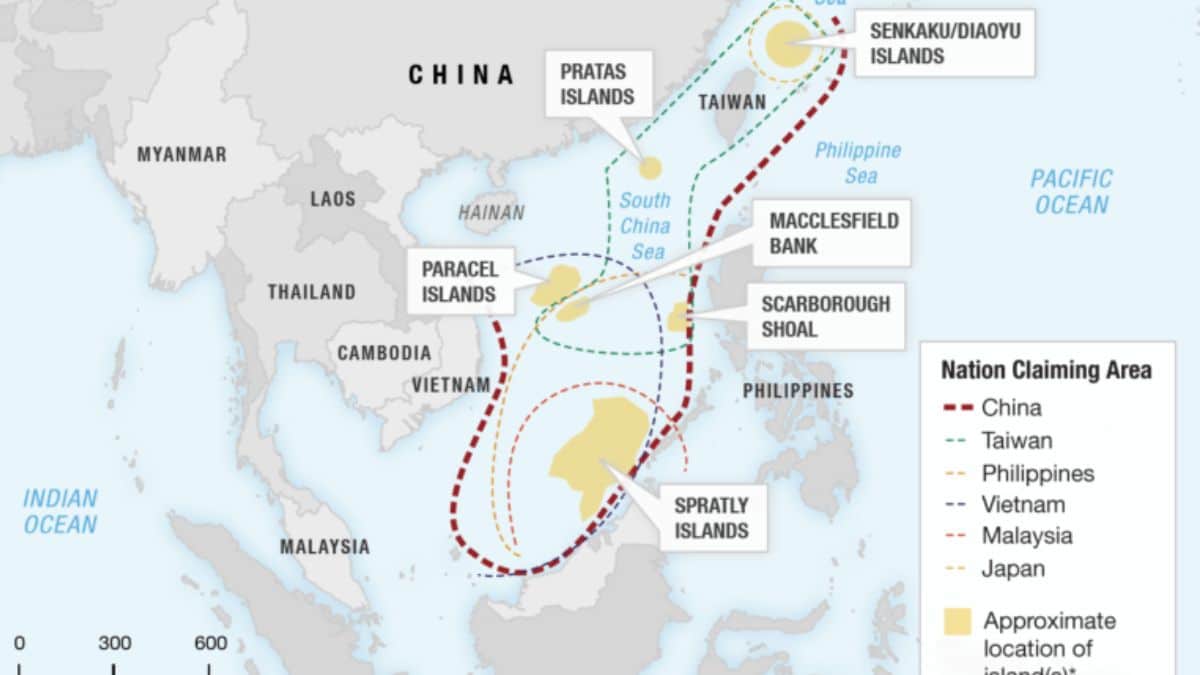 Image Credits - Studentsnewsdaily
Image Credits - Studentsnewsdaily
China has expressed strong opposition to Vietnam’s unilateral submission to the United Nations Commission on the Limits of the Continental Shelf (CLCS) regarding the delimitation of the outer continental shelf in the South China Sea. Chinese Foreign Ministry spokesperson Lin Jian made the announcement on Thursday, emphasizing that Vietnam’s claims encroach upon China’s territorial sovereignty and maritime rights, specifically in areas encompassing parts of the Nansha Qundao (Spratly Islands).
The dispute centers on Vietnam’s recent move to assert its maritime boundaries through the CLCS, a body responsible for evaluating the scientific validity of coastal states’ claims to extend their continental shelves beyond 200 nautical miles from their baselines. Vietnam’s submission, which aims to delineate its outer continental shelf, has sparked a swift and stern response from Beijing.
Lin Jian condemned Vietnam’s actions, stating that they violate China’s territorial integrity and sovereign rights. “Vietnam’s claims infringe upon China’s territorial sovereignty and maritime rights in the South China Sea,” Lin asserted. He further highlighted that the disputed area, Nansha Qundao, has been under Chinese administration and is an integral part of China’s territory. By submitting its case unilaterally, Lin argued, Vietnam is escalating tensions and undermining the cooperative spirit necessary for resolving such disputes.
Beijing insists that any disputes over maritime boundaries in the South China Sea should be resolved through direct negotiations between the involved parties, in accordance with international law, particularly the United Nations Convention on the Law of the Sea (UNCLOS).
The South China Sea, a strategic and resource-rich waterway, has long been a flashpoint for territorial disputes involving multiple countries, including China, Vietnam, the Philippines, Malaysia, and Brunei. China claims historical rights to vast swathes of the sea, marked by the so-called nine-dash line, a claim that overlaps with the exclusive economic zones of several Southeast Asian nations.
Vietnam’s recent actions are seen as part of its broader strategy to assert its maritime claims amid ongoing regional tensions. However, China maintains that such unilateral moves are counterproductive and exacerbate regional instability. Lin reiterated China’s commitment to safeguarding its sovereignty and maritime rights, while also calling for dialogue and negotiations to manage disputes.
The international community closely watches these developments, given the South China Sea’s significance for global trade and regional security. The outcome of this dispute and the responses from other claimant nations and international bodies could have far-reaching implications for regional geopolitics and international maritime law.
